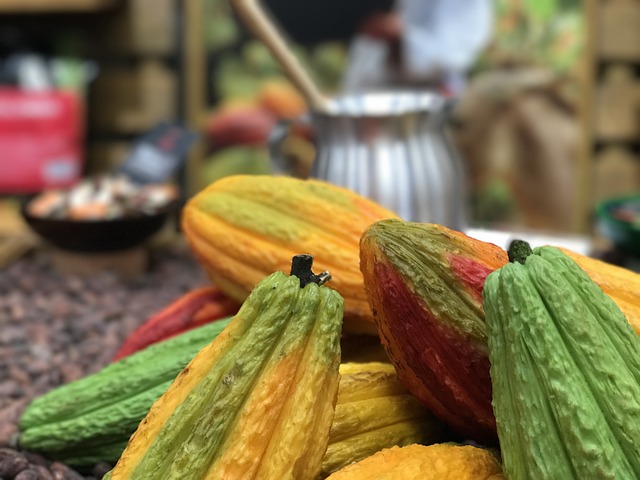by Martin Milán Csirszki
The interaction between sustainability and competition law and policy is a hot topic. While on the other side of the Atlantic, it does not attract too much attention, the competition watchdogs of some European Union member states, as well as the European Union itself have put great emphasis on the issue recently. The German (Bundeskartellamt) and the Dutch (Autoriteit Consument & Markt) competition agencies are particularly active in this regard.
One of the latest activities is of the Bundeskartellamt that declared no interest in conducting a detailed examination on the new initiative of the so-called Kakaoforum (a German registered association consisting of undertakings in the cocoa, chocolate and confectionary industry, as well as retailers) that aims to help cocoa farmers in Ghana and the Ivory Coast receive higher farm gate prices.
The Kakaoforum called its members to voluntarily commit themselves to individualised minimum prices, quotas and premium systems, and encourages the companies to use the reference prices determined within the framework of development aid research.[1] Those undertakings that are willing to take part in the initiative publish their prices in aggregated form.[2]
The two countries’ producers included in the project amount for 63% of global cocoa beans production: while the Ivory Coast is the leading producer with 43%, the second country in the rank, Ghana „only” produces 20% of the overall world-wide amount.[3] The cocoa production sector of these two West African countries faces hideous problems, such as child labour[4] (that is on the rise[5]), smuggling[6], land abuses and horribly low income for producers (less than 1 dollar a day).[7] There have been many attempts to better the circumstances of farmers but with mixed (or, rather, negative) results: it is enough to think of the Living Income Differential, an extra 400 dollars per ton surcharge on cocoa exports.[8]
According to some estimates, farmers’ share of the final sale is 6,6%, while manufacturers and retailers together pocket 79,4% (the remainder is divided between transport, processing and marketing).[9] Based on a survey, German consumers – in general – are of the opinion that farmers should be treated in a fairer way and should get more compensation.[10]
In light of these considerations, obviously, every initiative that undertakes to improve the situation of cocoa farmers is welcome, and here comes competition law to the picture, which – on the contrary – serves the interests of consumers rather than those of producers and which is keen to depress the price of any product.
Until the Bundeskartellamt’s declaration, only the ecological pillar of sustainability has infiltrated into the competition law discourse, however, it has two further aspects: social and economic. In the agricultural sector, social sustainability cannot be defined exactly, but „[i]nternationally accepted minimum conditions for human existence and more specifically the fulfulment of basic physiological and security needs, as defined by human rights and work rights can be seen as absolute minimum thresholds.”[11] Even this bare minimum is not realised in cocoa beans production in Ghana and the Ivory Coast, and exactly the achievement of this is aimed by the German federal competition authority’s alleviation.
The Bundeskartellamt’s main argument in connection with the unnecessity of a detailed examination of the Kakaoforumlies in the voluntary nature of the initiative. It says that „[t]here is no sanctioning mechanism if the members fall short of their commitments. Information on individual commitments are only published with the names of the producers and regions involved anonymised. In addition, the producers’ shares account for only a relatively small percentage in the further price formation along the value chain and of the final chocolate products.” The argumentation of the agency that the farmers’ share is (worryingly) low, and this – in part – also contributes to the lack of competition law analysis, not only seems odd from a competition authority, but also may raise our attention to the doubts against socially responsible antitrust agencies brilliantly summarised by Nobel Prize winner Jean Tirole.[12]
It is beyond doubt that the initiative is a noble cause, however, one may question its usefulness and whether it can achieve the intended objective – to help cocoa farmers. The Living Income Differential, which – in contrast with the Kakaoforum– was launched by the two West African countries and was labelled as the cocoa cartel in a pejorative way, has actually stifled, although it was a more direct intervention for the sake of raising the profits of farmers. Can we be sure that weaker or stronger attempts to influence prices are the real solution to cure the social problems? I think, we cannot. There are much deeper structural problems and inequalities in cocoa-exporting countries which prevent any striking (or minor) success. We are just scratching the surface.
We may only hope that the initiative is more than a good marketing step from the participants, be them private or public entities. Moreover, taking into account the initiative’s voluntary nature, one may also raise the question: why did the Bundeskartellamt deal with it at all and share its supporting but quite obvious opinion in a press release?
[1] See, for example: https://voicenetwork.cc/wp-content/uploads/2020/01/200113-Necessary-Farm-Gate-Prices-for-a-Living-Income-Definitive.pdf; https://files.fairtrade.net/2019_RevisedExplanatoryNote_FairtradeLivingIncomeReferencePriceCocoa.pdf.
[2] See: https://www.bundeskartellamt.de/SharedDocs/Meldung/EN/Pressemitteilungen/2023/13_06_2023_Kakaoforum.html.
[3] See: https://www.kakaoplattform.ch/about-cocoa/cocoa-facts-and-figures.
[4] The Washington Post: Cocoa’s child laborers, 5 June 2019.
[5] The Washington Post: U.S. report: Much of the world’s chocolate supply relies on more than 1 million child workers, 19 October 2020.
[6] The Guardian: Ghana’s cocoa farmers turn to smuggling as profits dwindle, 13 August 2014.
[7] See: https://www.fairplanet.org/story/towards-ethically-sourced-chocolate/.
[8] See: http://sustainablesmartbusiness.com/cocoa-and-smallholders-the-living-income-differential-is-a-failure-so-where-next/.
[9] See: https://www.visualcapitalist.com/cocoa-a-bittersweet-supply-chain/.
[10] Gesa Busch – Achim Spiller (2016) Farmer share and fair distribution in food chains from a consumer’s perspective, Journal of Economic Psychology, Vol. 55, pp. 149–158.
[11] Judith Janker – Stefan Mann – Stephan Rist (2019) Social sustainability in agriculture – A system-based framework, Journal of Rural Studies, Vol. 65, pp. 32–42.
[12] Jean Tirole (2023) Socially responsible agencies, Competition Law & Policy Debate, https://doi.org/10.4337/clpd.2022.04.05.

